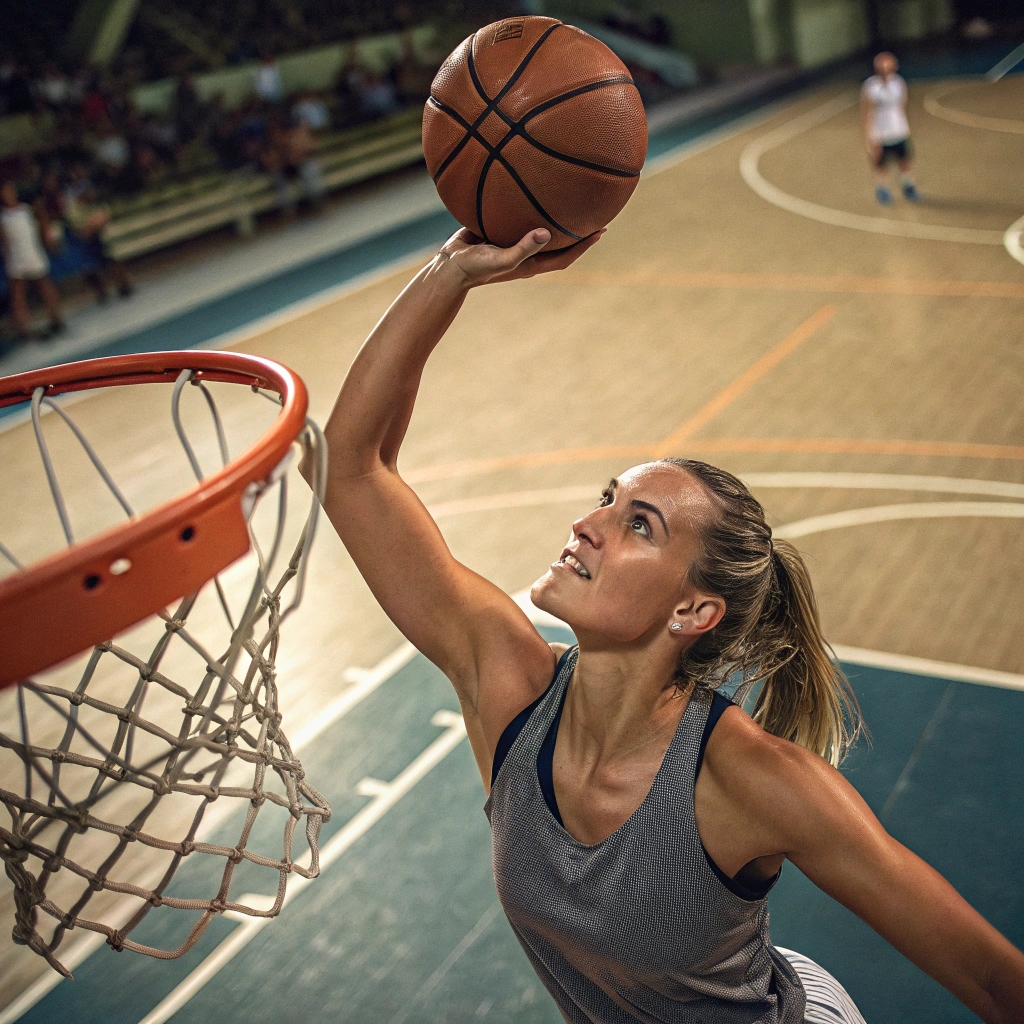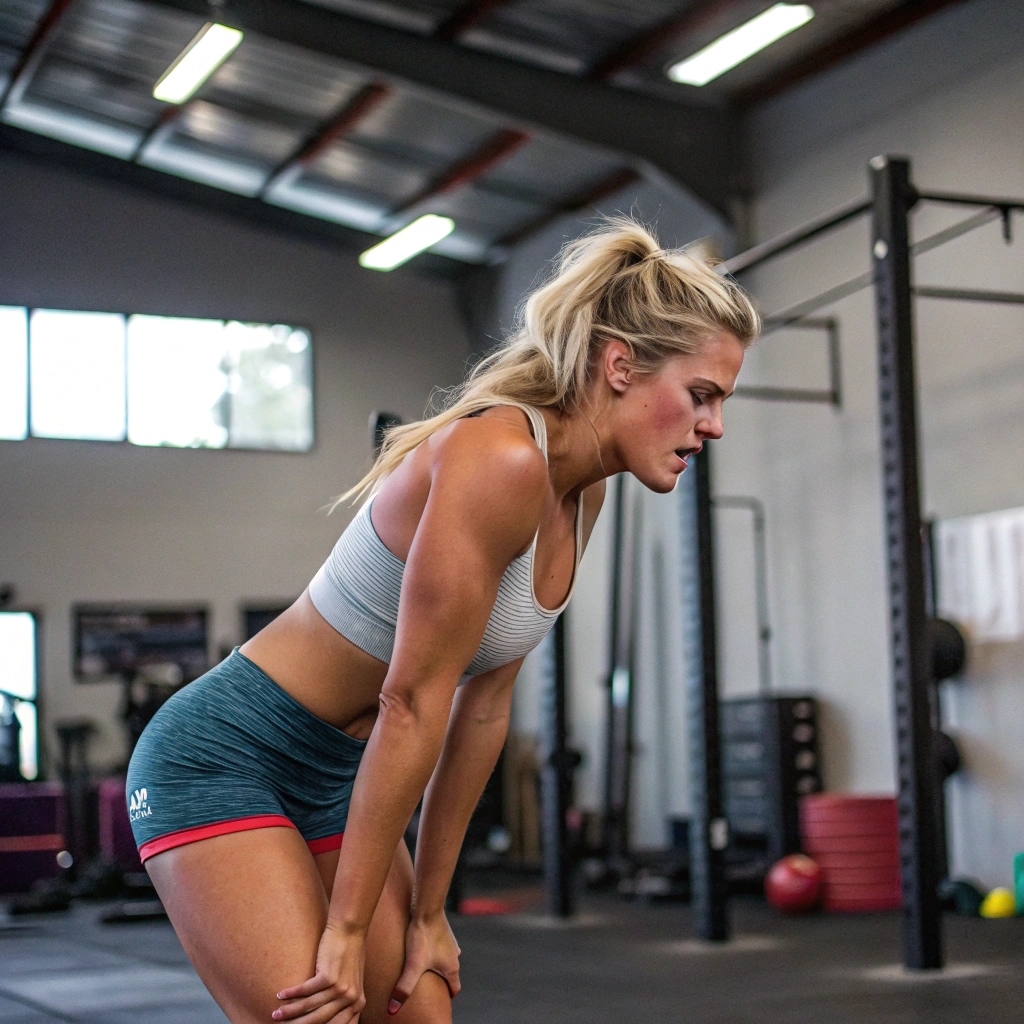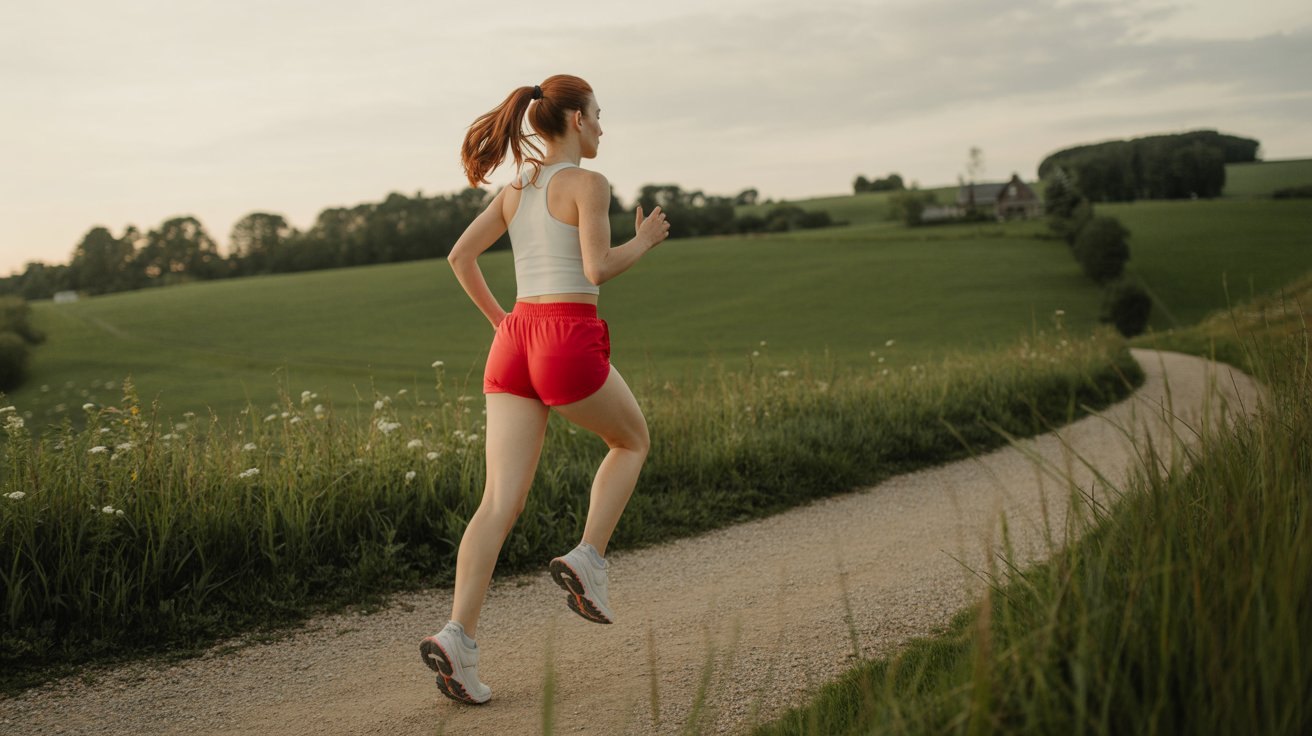Over 68% of college athletes sleep less than 8 hours a night. Yet, nearly 1 billion hours of sleep data from Eight Sleep shows quality rest is key for peak performance. Elite athletes like Shohei Ohtani and LeBron James say sleep is their secret to success.

Your health starts with sleep. Athletes using The Pod, a sleep-optimizing mattress, see a 10% boost in deep sleep in just 30 days. This means faster recovery, sharper focus, and fewer injuries. But, static bedroom temperatures or bad sleep habits, like phone use before bed, can mess up your sleep.
A 1-3°F temperature drop, as neuroscientist Andrew Huberman suggests, can help you sleep better. Athletes tracking their sleep with The Pod’s 99% accurate heart rate monitoring see better heart rate variability. This shows sleep is not just rest—it’s active recovery.
Key Takeaways
- Elite athletes using The Pod increase deep sleep by 10%, improving recovery.
- 68% of college athletes report poor sleep, risking injury and performance dips.
- Sleep hygiene practices like cooling rooms boost sleep quality and physical health benefits.
- Elite athletes like LeBron James link longevity to prioritizing sleep.
- 87% of athletes sleep below recommended hours, missing out on critical recovery phases.
Understanding Why Sleep Is the Secret Weapon for a Healthy, Athletic Body
Top athletes know sleep is key, not just downtime. Studies show those who sleep more perform better. For example, Stanford University found that basketball players who slept 10 hours improved their free throws by 9% and three-point shots by 9.2%. This shows how sleep quality and length affect sports performance and health.
Even losing just one hour of sleep can make athletes slower and more injury-prone. It’s clear that rest and recovery through sleep are essential for athletes.

“Basketball players who slept 10 hours nightly improved free throw accuracy by 9% and three-point shooting by 9.2%,” found Stanford researchers, proving sleep’s role in performance enhancement.
The Science Behind Sleep and Athletic Performance
Deep sleep releases growth hormone, which fixes muscles and boosts recovery. Athletes sleeping less than 7 hours see a 20% drop in performance. Stanford’s study showed losing just an hour of sleep can slow down sprint times and increase injury risk by 50%.
Sticking to a sleep schedule improves quality, leading to faster recovery and up to 15% better endurance.
How Sleep Quality Impacts Your Physical Capabilities
- Deep sleep stages trigger muscle repair and glycogen replenishment.
- Poor sleep quality reduces strength by up to 30% and slows reaction times by 50% in tennis players.
- REM sleep sharpens decision-making, while light sleep prepares the body for deeper recovery phases.
The Athletic Edge: What Happens During Different Sleep Stages
Deep sleep is key for physical recovery, with 75% of growth hormone released here. It helps fix muscles. REM sleep sharpens the mind, and light sleep prepares the body for deeper cycles.
Missing any stage can disrupt rest and recovery. Elite athletes need 9-10 hours of sleep to avoid overtraining syndrome, which is linked to poor sleep cycles.
The Harsh Reality: How Sleep Deprivation Sabotages Your Athletic Goals

Ignoring sleep can turn even the strongest athlete into a shadow of their true self. Sleep deprivation effects hit hard—athletes losing just one hour of sleep nightly see 10% slower sprint times and 53% reduced accuracy in skills like serving or shooting. Your body doesn’t just feel tired; it’s physically breaking down.
Here are some critical consequences:
- Reaction time slows by 300% compared to well-rested peers
- 3x higher risk of injury due to impaired coordination and weaker tissue repair
- 70% greater likelihood of burnout from unchecked stress hormones
| Performance Metric | Sleep Deprived | Optimal Sleep |
|---|---|---|
| Sprint Speed | 10% Slower | Peak Efficiency |
| Injury Risk | 70% Higher | Reduced by 50% |
| Decision-Making | 40% Slower | Sharp Focus |
Athletes like LeBron James and Simone Biles sleep 10+ hours to fuel performance enhancement. Yet, 61% of Americans report worse sleep than ever. Sleep-deprived athletes also face:
- Double the hunger hormone leptin, driving poor nutrition choices
- 2x higher cortisol levels, sabotaging recovery
- 30% slower muscle repair
“Sleep loss is a silent performance killer. Athletes lose 20% of their edge when they cut corners on rest.” – Dr. Cheri Mah, Stanford Sleep Medicine
Ignoring sleep isn’t just a bad habit—it’s a direct roadblock to your goals. Every missed hour of sleep costs you speed, strength, and resilience. The data is clear: your body can’t cheat sleep and win.
Sleep’s Role in Muscle Recovery and Growth

Quality sleep is more than just rest. It’s when your body fixes itself. It repairs muscles, boosts hormones, and gets ready for your next workout. Without it, you might lose strength and endurance gains.
Deep sleep turns on hormones like growth hormone and testosterone. These hormones help muscles grow. Research shows athletes who sleep 7–9 hours recover faster than those who don’t. For example, a 2011 study on college basketball players found better sprint times and accuracy by 5% for those sleeping more.
- Growth hormone peaks during deep sleep, repairing muscle fibers.
- Testosterone levels rise, aiding strength gains.
- Sleep deprivation drops these hormones, slowing muscle repair.
Deep sleep stages are key for tissue repair. Slow-wave sleep fixes muscle damage from workouts. It also reduces inflammation and boosts collagen, making muscles and joints stronger. Without enough deep sleep, recovery slows down, making injuries more likely.
Elite athletes like LeBron James prioritize 8–10 hours of sleep weekly to maximize recovery.
Rest days alone can’t replace sleep’s role. Poor sleep quality means muscles don’t get fully repaired. Athletes sleeping less than eight hours are 1.7 times more likely to get injured. Sleep is essential for rest and recovery, ensuring your body heals fully between workouts.
Without sleep, your body can’t fix damage from training. Make sleep quality a priority to avoid losing muscle progress and increase injury risks. Your performance depends on it.
Mental Performance Benefits: Sharper Focus and Better Decision-Making

Sleep is more than just rest for your body. It also sharpens your mind. Athletes who get enough sleep perform better in sports. They react faster and focus better.
Even a little sleep loss can hurt your mind. It slows down your thinking, which is key for top performance.
“Sleep is my secret weapon. Without it, my decisions on the track become foggy.” – Sara Hall, elite marathoner
Sleep’s Impact on Reaction Time and Coordination
Athletes need quick decisions. Poor sleep can hurt them a lot. Stanford researchers found that basketball players who slept 10 hours a night did better.
They shot free throws 9% better and three-pointers 9.2% better. Here’s how sleep loss affects athletes:
| Condition | Reaction Time | Coordination |
|---|---|---|
| Well-Rested | 22% faster reaction times | Improved hand-eye coordination |
| Restricted Sleep | Slowed by 15% on average | 25% more errors in drills |
How Mental Clarity Enhances Training Effectiveness
Deep sleep makes your brain stronger. It helps you remember skills like soccer kicks or gymnastics routines. Here’s how it works:
- Enhanced focus makes workouts better, ensuring every rep is precise
- Improved decision-making under pressure during games
- Better retention of complex strategies and drills
Every extra hour of sleep before a game makes you sharper. Optimal sleep turns practice into mastery. It gives you a mental edge in competition.
The Metabolism Connection: How Sleep Affects Your Body Composition
Your sleep and exercise metabolism are closely linked. Not getting enough sleep makes it hard for your body to control hunger hormones. This can make you want to eat more, leading to cravings for unhealthy foods.
Over time, this can mess up how your body burns fat and handles insulin. It becomes harder to keep a healthy weight.
A 2020 study found sleep-deprived individuals consume an average of 385 extra calories daily, fueling weight gain.
Key factors at play:
- Short sleep (
- Lack of sleep lowers glucose tolerance by 40%, worsening metabolic health.
- Leptin drops 19% while ghrelin rises 28%, increasing hunger signals.
Elite athletes and active people need 7-9 hours of sleep for the best physical health benefits. Deep sleep boosts growth hormone, helping with muscle repair and fat loss. But, not getting enough sleep can lead to storing fat instead of building muscle.
Studies show the lowest obesity risk is at 7.7 hours of sleep. This matches the CDC’s 7-hour minimum sleep advice.
Not getting enough sleep each night can make you gain weight and become insulin resistant. Sleep is more than just rest—it’s a key part of staying fit.
Creating Your Optimal Sleep Environment for Athletic Recovery
Starting with a sleep space that focuses on athletic recovery is key. Every little thing, from the room’s temperature to the mattress, affects your body’s repair and your mind’s sharpness. This is all about physical health benefits and performance enhancement.
“Quality sleep can enhance shooting percentages and overall athletic performance,” says UCSF researcher Cheri Mah.
Engineer Your Sleep Space for Optimal Conditions
- Set room temps between 60-67°F (15-19°C) to align with natural body cooling during sleep.
- Block light entirely—use blackout curtains to boost melatonin production and deepen sleep cycles.
- Use white noise machines or earplugs to eliminate disruptive sounds; silence improves sleep continuity.
Select Sleep Surfaces for Muscle Support
A high-quality mattress like Tempur-Pedic or Casper keeps your spine aligned. This reduces morning stiffness. Side sleepers need memory foam pillows, while hot sleepers prefer cooling gel pillows. Good support helps avoid aches that hinder athletic recovery.
Track and Optimize with Technology
Wearables like the Oura Ring or Fitbit track your sleep stages and sleep quality. Use this data to adjust your routines. Apps like Sleep Cycle help you wake up feeling alert by analyzing sounds during sleep.
Pre-Sleep Routines That Maximize Recovery
A consistent pre-sleep routine is key for athletic recovery. Your body likes routine, so follow these steps for deep rest:
- Avoid screens 1 hour before bed to block blue light disrupting melatonin.
- Stop caffeine intake 6–10 hours prior to bedtime to ensure it’s fully processed.
- Finish meals 2–3 hours before sleep to avoid digestive interference with rest.
- Incorporate light stretching, meditation, or journaling to lower stress hormones.
Warm showers or guided breathing exercises can relax muscles. These actions help you spend more time in deep sleep. This is when your body repairs and grows.
Athletes like Simone Biles use pre-bed reading to calm their minds. Skipping these steps can leave muscles overworked and minds tired. Being consistent helps your body rebuild strength overnight, getting you ready for the next day.
Nutrition Strategies That Support Better Sleep and Recovery
Your diet choices affect your sleep and recovery. Eating the right foods at the right times is key. Bad timing can lead to stomach issues at night, making it hard to recover.
Timing Your Meals for Optimal Sleep
Eat your last meal 2-3 hours before bed. This lets your body digest without trouble. A light snack with protein and carbs can help repair muscles while keeping blood sugar stable.
- Large meals → digestive stress → fragmented sleep
- Hydrate early; limit fluids 1 hour before bed to avoid disruptions
Foods That Promote Deep, Restorative Sleep
Tryptophan and magnesium are important for sleep hormones. Adding these to your diet can improve sleep and performance:
| Food | Nutrient | Benefit |
|---|---|---|
| Almonds | Magnesium | Calms nerves and improves muscle relaxation |
| Kiwi | Serotonin precursors | Increases sleep duration and efficiency |
| Fatty fish (salmon) | Vitamin D + omega-3s | Enhances sleep quality and reduces inflammation |
What to Avoid Before Bedtime
Caffeine stays in your system for up to 8 hours, making it hard to fall asleep. Alcohol might make you sleepy but can disrupt deep sleep later. Avoid spicy or fatty foods to prevent acid reflux.
“Sleep deprivation effects like reduced muscle repair and slower recovery are linked to poor nutrition choices at night.” – National Sleep Foundation
- Caffeine cutoff: 2-3 PM for sensitive individuals
- Alcohol: Avoid 4 hours before bed to protect REM sleep
- Skip sugary snacks: Prevent blood sugar spikes that disrupt sleep cycles
Adjusting Sleep Patterns Around Training and Competition
Elite athletes like LeBron James and Novak Djokovic sleep for 10+ hours each night. This helps them perform at their best. Before big games or intense training, it’s key to adjust sleep times and amounts.
Sleep banking, or getting extra sleep before an event, can help. It can reduce anxiety and improve reaction times. Studies show it can lower injury risks by up to 32%.
“Players who extended sleep to 10 hours improved sprint times by 17% and shooting accuracy by 9%,” according to a Stanford University study.
Sleep Banking Strategies for Performance Enhancement
- Start adding 30–60 extra minutes nightly 5–7 days before an event.
- Avoid caffeine and screens 3 hours before bed to boost melatonin production.
- Use naps up to 90 minutes to recharge without grogginess.
After hard workouts, getting enough sleep is key for recovery. Swimmers who slept 10 hours after training reacted 20% faster. Devices like Whoop or Oura can help figure out when you need more rest.
A table comparing pre- and post-event sleep tactics:
| Before Events | Post-Event |
|---|---|
| Bank 9–10 hours nightly | Allow 10–12 hours for repair |
| Gradually adjust bedtime 2 weeks prior | Use weighted blankets to deepen sleep cycles |
| Limit alcohol and heavy meals | Monitor HRV to adjust schedules |
Why is sleep so important? Athletes sleeping less than 8 hours are 68% more likely to get hurt. Adjusting sleep to match training phases helps keep performance high. It’s all about finding the right balance to stay at the top of your game.
Troubleshooting Common Sleep Issues for Athletes
Travel, competition stress, and irregular schedules often disrupt an athlete’s rest. Over 68% of soccer players report poor sleep quality. Sleep deprivation effects like slower reaction times and reduced stamina can derail progress. Here’s how to address these challenges:
- Jet lag? Shift your bedtime gradually. For eastward travel, go to bed earlier; westward, sleep later. Use light exposure to reset your clock.
- Restless in unfamiliar rooms? Bring a familiar pillow or blanket. Use earplugs and eye masks to mimic your home environment.
- Pre-competition anxiety? Try 10 minutes of deep breathing or progressive muscle relaxation before bed. Write down worries in a journal to clear your mind.
- Overstimulated after training? Wind down with a pre-bed routine: read a book, take a warm shower, or listen to calming music.
Short naps (15-25 minutes) can restore focus without grogginess. Avoid caffeine 6+ hours before bed, and keep your room cool (65-69°F). If sleep disruptions persist, consult a sleep specialist. Consistency is key—aim for 7-9 hours nightly to fuel recovery and peak performance.
Conclusion: Embracing Sleep as Your Performance Superpower
Why is sleep so important for athletes? It’s the key to top sports performance. Athletes who get 7–9 hours of sleep each night recover faster, focus better, and get hurt less. Sleep is not just a luxury; it’s when your body fixes muscles, sharpens your mind, and quickens your reflexes.
Top athletes in sports like soccer and track know the power of sleep. Every night, deep sleep fixes tissues and REM stages boost creativity and strategy. Without it, you might struggle to recover and stay focused. Even a little sleep loss can make simple tasks hard.
Start making small changes to improve your sleep. Try going to bed 15 minutes earlier or swap coffee for herbal tea. Use a sleep app or blackout curtains to help. Over time, these changes will make sleep your most powerful training tool. Just like Einstein, who slept 10 hours a night to spark his creativity, you can make sleep a daily habit that boosts your performance.
FAQ
Why is sleep considered a secret weapon for athletes?
Sleep is key for both physical and mental health. It helps with hormone balance, muscle repair, and brain function. This makes it vital for top sports performance.
How does sleep quality differ from sleep quantity?
Sleep quality is about how well you sleep, including sleep stages and disturbances. Just getting enough sleep isn’t enough. You need quality sleep for the best results.
What happens during the various stages of sleep that benefits athletes?
Deep slow-wave sleep boosts muscle repair with growth hormone. REM sleep sharpens brain skills like learning and strategy. These are key for sports success.
What are the effects of sleep deprivation on an athlete’s performance?
Lack of sleep hurts performance right away. It can make you slower, less accurate, and less skilled. It also raises injury and health risks.
How does sleep impact muscle recovery and growth?
Sleep boosts hormones for muscle repair and growth. Growth hormones released during deep sleep are vital for muscle recovery after exercise.
Why are rest days not enough without quality sleep?
Rest days are important, but they don’t automatically fix everything. Quality sleep makes rest more effective by improving hormone levels and tissue repair. This is critical for athletes.
How does sleep affect mental performance in sports?
Sleep is essential for focus, decision-making, and coordination. Well-rested athletes perform better in training and competitions. They’re more focused and adaptable.
What role does sleep play in an athlete’s metabolism?
Sleep affects how your body handles glucose and fat. Poor sleep can mess with hormone balance, making it hard to manage weight and body composition.
How can athletes create an optimal sleep environment?
Keep the room cool, dark, and quiet. Choose the right mattress and pillows for your needs. These steps improve sleep quality.
What pre-sleep routines can help athletes maximize recovery?
Develop routines like relaxation, mindful breathing, and avoiding screens before bed. These help prepare your body for better sleep and recovery.
What nutritional strategies support better sleep?
Eat meals at the right times, including sleep-friendly foods like lean proteins and whole grains. Avoid caffeine and heavy meals before bed.
What is sleep banking and how can it benefit athletes?
Sleep banking means sleeping more before a big event to recover better. It helps deal with stress and sleep loss during competitions.
What common sleep issues do athletes face, and how can they be addressed?
Athletes often struggle with stress, jet lag, and irregular schedules. Use relaxation, light adjustments, and napping to manage these issues.


